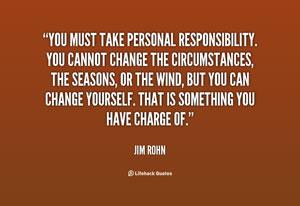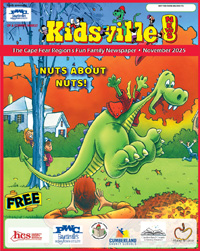
The Sunday school class that I am a member of discussed Zechariah’s Song on Sunday, Dec. 13, 2015. In that song, Zechariah, who is the father of John the Baptist, expresses thanks for God’s faithfulness, talks about how his son will prepare the way for Jesus, and concludes by giving the only course to peace and successful living. That course is in Luke 1:78-79 which says: “Because of our God’s deep compassion, the dawn from heaven will break upon us, to give light to those who are sitting in darkness and in the shadow of death, to guide us on the path of peace.” Light symbolizes seeking to live as God commands while darkness represents everything that is anti-God. I am convinced that America is a country in darkness. Beyond being in darkness our destiny is in the hands of leaders who do not seem to recognize that we are in darkness nor do they comprehend the consequences of being in darkness.
This state of darkness shows through in many ways. These ways range from acceptance of same sex marriage to legalizing marijuana and wanting to legalize more destructive drugs. Add to these the wide-spread support for abortion, driving Christianity from the public square, viewing out-of-wedlock pregnancies as a societal norm and living beyond our financial means as a nation. On and on goes the listing of darkness indicators.
As of Dec. 15, I am reading every installment of a series of articles that brings this darkness front and center. The series is “Poverty’s Price” by Greg Barnes in The Fayetteville Observer. Let me be clear in saying Barnes is reporting what is happening and putting forth the thinking of various people on the matter. He is doing a superb job. Regarding the aim of his series, Barnes says even though he tells stories about black citizens, “…it is not primarily a story about race. Instead, it is a story about poverty. Grinding, multi-generational poverty that provides only glimpses of hope for emergence.”
Barnes says that a report released by the University of North Carolina Center for Urban & Regional Studies classified six census tracts in Fayetteville as economically distressed. He writes, “To reach that designation, poverty and unemployment rates in the census tracts had to be at least 50 percent higher than the state average and annual per capita income at least a third lower.” The writer focuses on the Old Wilmington Road and B Street area, which are among the six economically distressed tracts. Almost all of the residents in this tract are black. Barnes records, “Here, nearly one family in three doesn’t own a car or earn more than $10,000 a year, according to the most recent statistics.”
Now comes a discussion of reasons for this “grinding poverty:”
1. Lack of opportunity.
2. Children being reared in single-parent households by a mother or grandmother in a family stuck in poverty.
3. Limited access to preschool, which leads to children starting school without much exposure to learning.
4. Poor parent involvement in the education process of their children.
Walker-Spivey Elementary School serves the Old Wilmington Road area. Unexcused absences and tardiness are a factor in children performing poorly in school. Barnes writes that Erica McAdoo, the Walker-Spivey principal, said at her school these conditions can be attributed to transportation issues or a caretaker working two jobs. He adds, “But she acknowledged that parents are largely to blame. Most of the children who attend Walker-Spivey live within walking distance of the school.”
5. Poor role models. This especially refers to black men without good jobs.
6. Out of school suspensions.
7. High arrest rates among blacks. Again, this factor especially focuses on black men.
These are not all the possible causes of poverty among Fayetteville citizens as reflected in the article. Against the backdrop of the poverty causes listed above, consider the following comments from community leaders as to how poverty can be alleviated. Some of these are from the article while others are from elsewhere but inspired by Barnes’ article. What I see is the usual argument for government spending more money on a multitude of programs and people outside these poverty-stricken communities having total responsibility for correcting the dire situation within those communities:
1. Talking about the progression of a black boy in poverty to a brush with the law, Barnes writes, “Because his family is poor and because public resources to assist him are stretched, he may not get much help to make this brush with the law a chance for redirection.”
2. Val Applewhite, a former member of City Council who recently lost her second bid to become Mayor of Fayetteville, posted this on Facebook after an early article in Barnes’ series, “This is Fayetteville, N.C. Yet, our Mayor and City Council will ask us to vote in March 2016 to approve millions of dollars to spend on pools and baseball fields.”
3. On Dec. 13, an Observer editorial talked about the negative impact of poverty on the whole population then said, “Breaking the cycle would have an enormous payoff. But that will require investment, and this state is moving in the opposite direction — cutting, for example, early-education funding instead of increasing it to meet community needs.”
4. Rick Glazier was a state lawmaker for 13 years and now heads the N.C. Justice Center. Larry Wright is a local pastor and member of the Fayetteville City Council. Barnes writes that Glazier and Wright argue, “…that the city and the state aren’t doing enough for poor people and poor neighborhoods.”
So, my reading of the series so far leads to the conclusion the prevailing thinking is that people outside of these poverty-stricken communities have a responsibility to spend more taxpayer money and assume responsibility for externally correcting a problem for which the core causes are individual citizen responsibilities and life-style choices.
Here is the prime picture of why the “spend more money” and put the correcting responsibility on people outside the economically distressed communities shows us to be a country “locked in darkness.” Barnes tells the story of one black boy who is going through the experiences and reactions that could land him in jail. He casually, routinely mentions that this 11-year old has four brothers and all his brothers came from different mothers. Then this from Barnes, of the 73 women who gave birth in this census tract in 2014, only three were married, and all 73 were living in poverty. Nowhere in the first three articles have I seen that anybody raises this matter of out-of-wedlock pregnancies. Without doubt, this is the primary cause of the grinding poverty that Barnes writes about.
Several years ago I was driving four black boys to an event. All of them were sixth or seventh grade and from households headed by a single female. Out of nowhere, those boys started talking about how the cycle of out-of-wedlock pregnancies had to be stopped. They began with how it negatively impacts the children and families. They ended with, “Sex outside of marriage is a sin.” Those boys understood darkness and the consequences of living in darkness.
If a group of sixth and seventh grade black boys could figure this out, how is it so many adult Americans seem clueless?
There are only a few possible answers:
(1) Having people in poverty and appearing to care for them is politically profitable. It wins votes. This process financially incentivizes out-of-wedlock pregnancies.
(2) There is money to be made from the existence of poverty.
(3) In spite of common sense and history indicating otherwise, they genuinely believe that government spending is the answer to alleviating poverty.
Whatever the reason, we are following a course to a guaranteed horrible outcome. America needs people who understand the light of God that values all people and calls us to a way of life that is morally responsible and thereby dispels the darkness. Light that unlocks the darkness includes teaching abstinence and purpose, fiscal responsibility and goal-setting, accountable parenting and pursuit of opportunities. This instruction will be most effective when done in the context of a call to Godly living.

 How to resolve AdBlock issue?
How to resolve AdBlock issue? 








